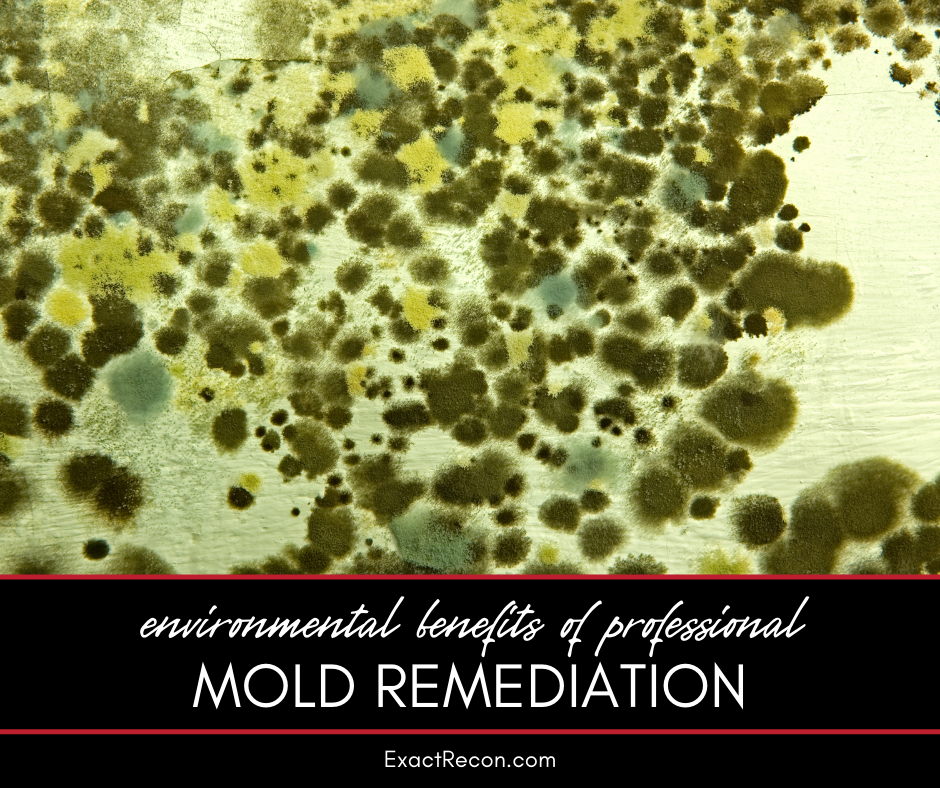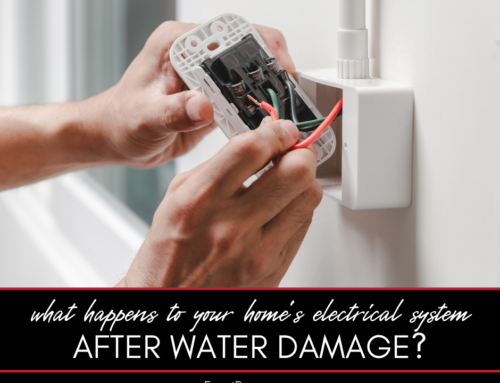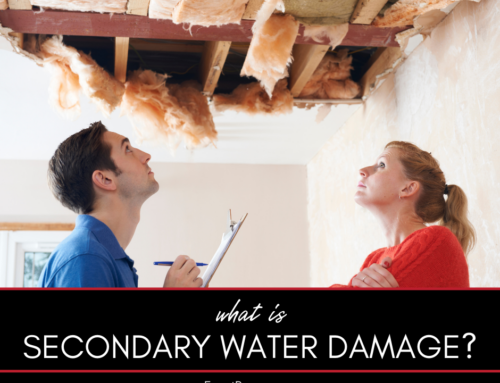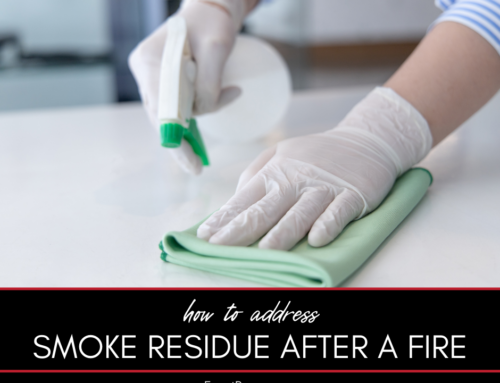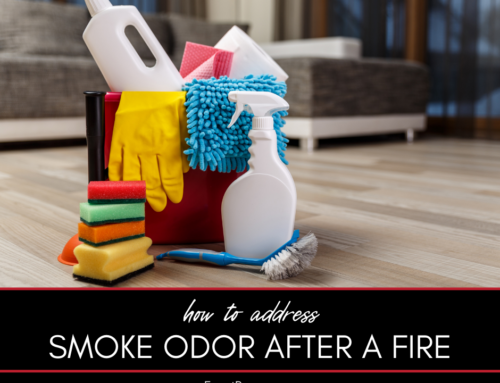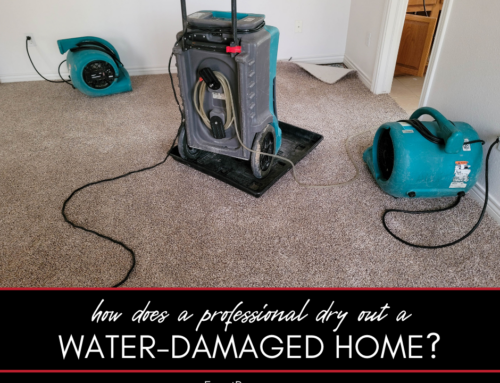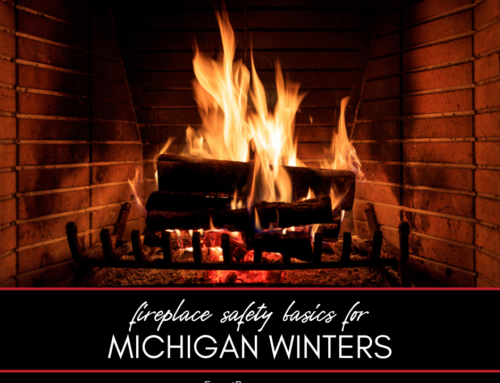Mold can be a serious issue in any home, and while its immediate risks—such as respiratory problems and structural damage—are well-known, the environmental impact of mold and its remediation is often overlooked. Professional mold remediation goes beyond protecting your indoor air quality; it supports a healthier environment through sustainable practices, reduced chemical usage, and proper disposal methods. Here’s how professional mold remediation benefits both your home and the planet.
The Environmental Benefits of Professional Mold Remediation
Professional mold remediation addresses mold problems efficiently and safely, helping to reduce environmental harm. This guide covers the following key benefits:
- Reducing chemical use and limiting harmful pollutants
- Lowering waste through effective mold removal and prevention
- Supporting healthier indoor air quality and sustainability
- Preventing further property damage and resource depletion
- Encouraging environmentally responsible disposal practices
Here’s a closer look at each.
Reducing Chemical Use and Limiting Harmful Pollutants
DIY mold removal often involves using harsh chemicals like bleach or ammonia, which can release harmful fumes and toxins into the air. These substances not only pose health risks but can also contaminate soil and water sources if not disposed of properly. Professional mold remediation teams use eco-friendly, EPA-approved cleaning agents designed to effectively remove mold without harming the environment.
By choosing a professional service, you help reduce the number of pollutants released during the remediation process. Technicians are trained to assess mold growth accurately and use minimal, environmentally safe products that eradicate mold while leaving less impact on surrounding ecosystems.
Lowering Waste Through Effective Mold Removal and Prevention
Mold can spread quickly and damage building materials, furniture, and other household items. Left untreated, mold often results in unnecessary waste, as homeowners may have to discard entire sections of drywall, flooring, or even furniture. Professional mold remediation limits this waste by precisely targeting mold growth, removing only the materials that are beyond repair, and treating salvageable materials with effective mold inhibitors.
With preventative measures included in professional remediation services, future mold growth is less likely, which reduces the need for further disposal and waste generation. Prevention efforts often include moisture control strategies, advice on proper ventilation, and sealing vulnerable areas—all of which contribute to a healthier, more sustainable home environment.
Supporting Healthier Indoor Air Quality and Sustainability
Professional mold remediation contributes significantly to improving indoor air quality, which not only benefits your health but also supports overall sustainability. Mold spores release toxins called mycotoxins, which can affect air quality and lead to health issues. Indoor air pollution contributes to wider environmental problems, as poor air quality can exacerbate respiratory issues, leading to increased healthcare needs and resources.
By eliminating mold and controlling spores, remediation services improve your indoor air quality without relying on synthetic air purifiers or temporary fixes. The emphasis on permanent solutions means your home remains healthier and more sustainable long-term, reducing the energy and resources needed to mitigate air quality issues.
Preventing Further Property Damage and Resource Depletion
Mold spreads quickly when left untreated, often causing damage that requires extensive repairs or even rebuilding parts of the structure. By addressing mold early through professional remediation, you reduce the need for major repairs that consume natural resources like wood, cement, and drywall. Additionally, smaller repairs mean less reliance on fossil fuels used in manufacturing, transportation, and installation processes for construction materials.
Preventing widespread mold damage also saves homeowners from the resource-intensive process of disposing of and replacing affected materials. Professional remediation includes steps to control humidity and airflow, which helps prevent mold from spreading and further damaging your property’s structure.
Encouraging Environmentally Responsible Disposal Practices
Proper disposal of mold-contaminated materials is essential to prevent the spread of spores into the environment. Professional mold remediation teams follow strict guidelines for disposing of moldy materials responsibly, ensuring that they’re contained and disposed of according to environmental regulations. In contrast, improperly disposed mold-contaminated items can release spores that may re-enter other parts of the ecosystem or contaminate public waste systems.
By hiring a professional service, you ensure that contaminated materials are disposed of responsibly, reducing the risk of mold spores spreading and contaminating new areas. This process protects both the immediate environment around your home and the broader ecosystem by preventing cross-contamination and minimizing landfill impact.
FAQ About The Environmental Benefits of Professional Mold Remediation
Check out these commonly asked questions about the environmental impact of professional mold remediation. If you don’t see the answers you’re looking for here, please call our office and we’ll find you the answers you need.
How Does Professional Mold Remediation Protect the Environment?
Professional remediation uses eco-friendly products and responsible disposal methods, reducing chemical pollutants and preventing the spread of mold spores into the ecosystem. This approach minimizes environmental impact while effectively treating mold.
Can Professional Mold Remediation Reduce the Need for Future Repairs?
Yes, professionals address the root causes of mold, such as moisture issues and inadequate ventilation, which helps prevent future mold growth and reduces the need for extensive repairs. This, in turn, limits resource consumption and environmental waste.
Are the Cleaning Products Used in Professional Remediation Safe for the Environment?
Reputable remediation companies use EPA-approved, eco-friendly products that are effective against mold without releasing harmful toxins or pollutants. These products are specifically chosen to be safe for indoor air quality and the surrounding environment.
How Does Proper Disposal Help Prevent Environmental Contamination?
Professional remediation teams follow strict guidelines to contain and dispose of mold-infested materials, preventing spores from spreading to landfills or contaminating other areas. This responsible disposal reduces environmental contamination risks.
Is Professional Remediation Better Than DIY for Environmental Impact?
Yes, professional remediation services are more environmentally responsible. They use safe products, targeted removal techniques, and strict disposal protocols, which are less harmful to the environment compared to typical DIY methods that may rely on harsh chemicals.
Do You Need a Disaster Remediation Expert in Washtenaw County or Jackson County?
If your home has already been damaged, we can help. Check out our services and call Exact Recon for your free disaster remediation quote today. We offer:
- Water damage restoration
- Fire damage restoration
- Mold removal and remediation
- Fire and smoke restoration
- Sewer cleanup and disinfecting
- Reconstruction
- Wind and storm damage repair

